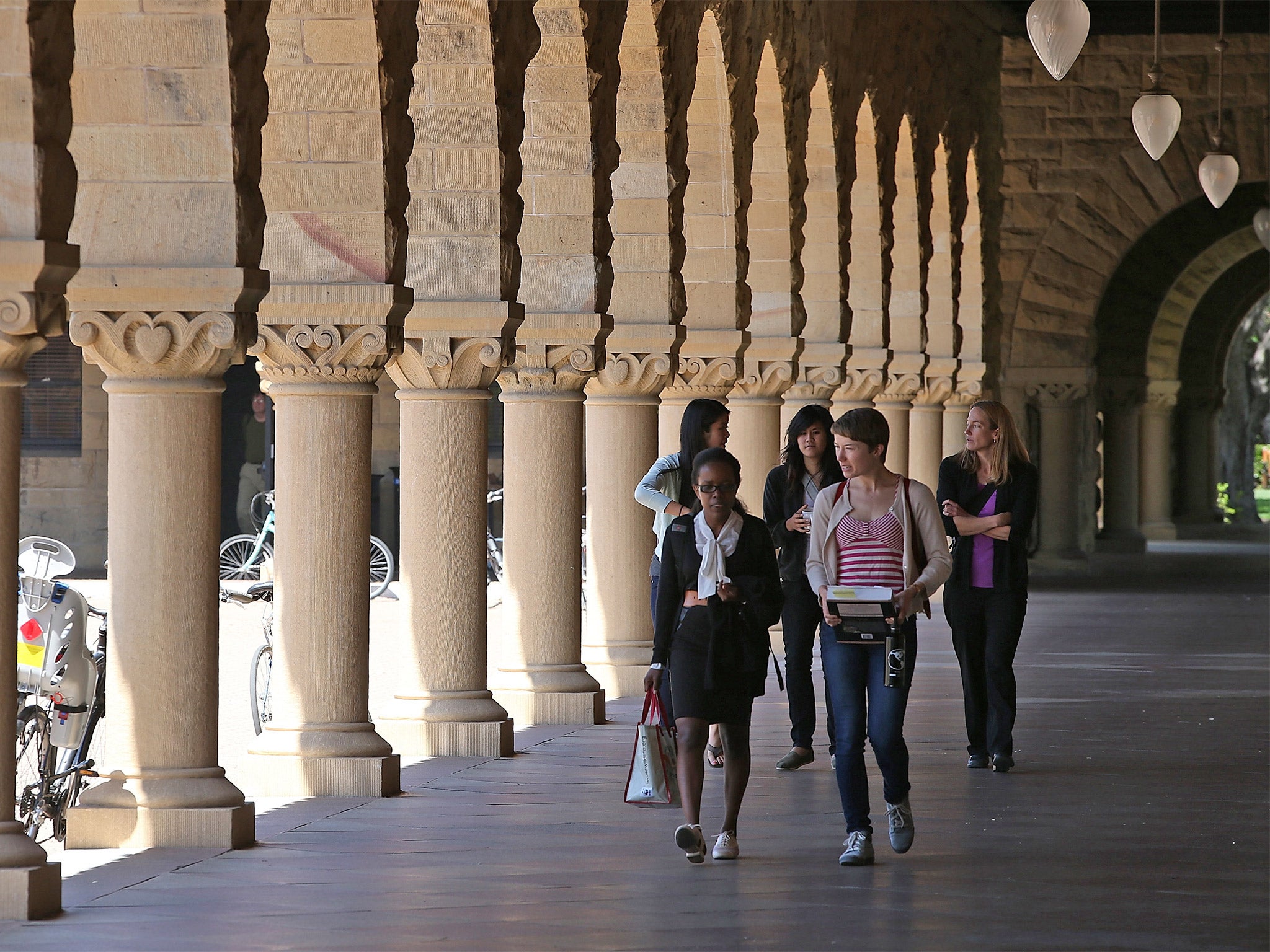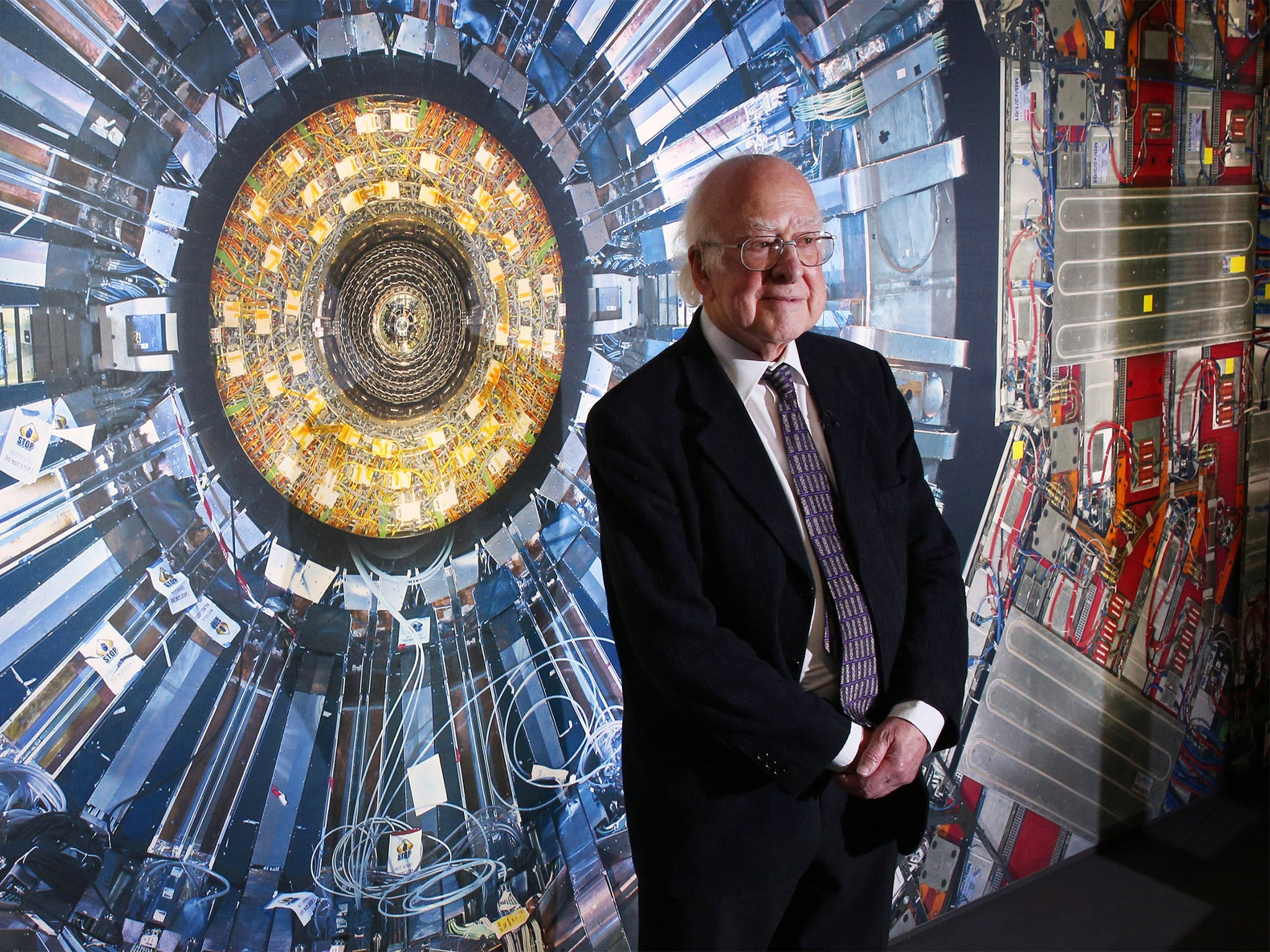Nobel Prize: UK universities fail to make top 10 list for most science and medical winners
71 Americans have won awards since 2000 – compared with just 12 British-born

Securing a Nobel prize for a breakthrough, hi-tech research project is one of the most prestigious – and marketable – triumphs a university can achieve.
But British institutions are falling behind foreign rivals when it comes to hosting academics who win the awards, according to a US-dominated league table. Not one British institution made the top 10 of those with science and medical Nobel prize-winners affiliated to them this century. The list includes eight US universities, with Stanford taking top place. The other two places were taken by Technion, the Israel Institute of Technology, and Germany’s Max Plan Society.
The UK still comes second in terms of how many Nobel Laureates were won by researchers born in each country, behind only the US.
The table, compiled by the Times Higher Education (THE) magazine from all the awards made this century, shows 71 Americans have won awards since 2000 – compared with just 12 British-born academics. Of those dozen, four are affiliated to US universities.

Phil Baty, editor of THE, said its findings should be seen as a “warning sign” by British universities, arguing that the list showed the reward for those institutions that were most willing to give their academics the freedom and support to fulfil their potential.
“This list gives a snapshot of universities at the top of their game: those attracting and nurturing the very best faculty in the world and those willing to give their academics the freedom and support to fulfil their potential. It is not surprising the US dominates.”
But he added: “The UK should also take this as a warning sign. Is the uniquely pressurised atmosphere created by funding cuts and a growing culture of short-termism and target-setting taking its toll on our academics’ ability to truly find the space to think big?”
Among the British universities who can boast an award-winner are Cambridge, Cardiff, Edinburgh. Nottingham and University College London. Manchester, which saw two of its foreign-born scientists, Andre Geim and Konstantin Novoselov, take the prize for inventing the “wonder material” graphene in 2010, has found that the Nobel win amounted to 15 per cent of all its media coverage, and became the first thing that people associated with the institution.
British prize-winners who are affiliated to universities in the UK include the Royal Society president Sir Paul Nurse, the biochemist Sir Tim Hunt and the physicist Peter Higgs.
The table was published after the company secretary of the Russell Group of leading universities predicted that leading universities in the UK are likely to be pushed into mergers with their counterparts abroad.
Glynne Stanfield, who is also a partner at Eversheds law firm leading its international education practice, said there would be a union between a British and American institution within five years because of financial pressures and global competition.
“At the top end of the market, the Russell Group and the elite, I think there will be a merger between a top UK university and a US university in the next five years,” he told THE. “I think they will do it not for money but for reputational gain.
“They will get the league table performance, and the ability to tap into a broader staff and student base than at the moment.”
British winners and their institutions
- Sir Paul M Nurse Imperial Cancer Research Fund, London
- Sir Tim Hunt Imperial Cancer Research Fund
- Sir John E Sulston The Wellcome Trust Sanger Institute, Cambridge
- Sir Clive WJ Granger University of California, San Diego
- Sir Anthony J Leggett University of Illinois, Urbana
- Sir Peter Mansfield University of Nottingham, School of Physics and Astronomy
- Sir Martin J Evans Cardiff University
- Oliver Smithies University of North Carolina at Chapel Hill
- Jack W Szostak Harvard Medical School, Boston; Massachusetts General Hospital, Boston; Howard Hughes Medical Institute
- Sir Robert G Edwards University of Cambridge
- Sir John B Gurdon Gurdon Institute, Cambridge
- Peter W Higgs University of Edinburgh
Join our commenting forum
Join thought-provoking conversations, follow other Independent readers and see their replies
Comments